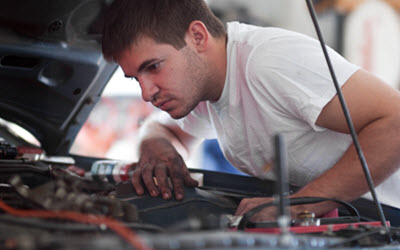
The Best Repair Shop in Santa Barbara to Fix a PCV Valve Failure in a BMW
06 May, 22
Your BMW operates using many different components that all need to work together seamlessly in order to create the smooth driving experience that you are so accustomed to. This means that, as a BMW owner, if you want to maintain that smooth experience, you need to pay attention to what your car is telling you and react if something seems a little off.
One possible problem that many BMW owners run into is a PCV (Positive Crankcase Ventilation) valve failure. We’re going to walk you through what the PCV valve is, what symptoms will let you know there’s a problem, and what to do if or when this component stops working.
The PCV Valve’s Function
The combustion engine is a truly amazing feat of human engineering, but it is also dangerous in many ways. One of these ways is the toxic gases that are created as byproducts of the combustion process. These gases, known as blow-by gases, are mostly unburned fuel vapors. They are highly toxic and corrosive, and up until the 1960s, they would hang out in the crankcase and slowly eat away at the components under the hood of vehicles, causing expensive damage.
The PCV valve was created to do away with these dangerous gases. It works by pulling the blow-by gases away from the crankcase and then feeds them back into the engine, where they can be burned away.
As you might expect, when this vital component fails, the dangerous gas can leak back into the crankcase and cause serious damage.
Symptoms of PCV Valve Failure
One of the unfortunate things about automobiles is that because so many of its systems are interconnected, there is not usually one specific symptom to look for that will tell you for sure the source of the problem. Most of the symptoms listed are also possible symptoms of myriad other engine problems. That’s why it’s important to see our experienced mechanics. We will determine exactly what the problem is in order to repair it quickly.
With that being said, being able to describe the symptoms will help narrow it down faster. So here are some possible issues to watch out for:
- Black smoke from the hood or engine. This might seem pretty self-explanatory, but you should never see smoke coming from your vehicle while it is running. If you do, that’s a sign that there is something burning, and you should get it fixed as soon as you can.
- Oil leaks/increased oil consumption. Oil leaking is a common problem that comes with many different kinds of engine problems, including ones involving the PCV valve. Even if there is not an actual leak, you may find your car needing to have its oil replaced more often anyway.
- Lowered fuel economy. Part of the function of the PCV valve is to make your BMW run more efficiently by recycling unused materials to be used to power your car. If it’s not doing that job, you’ll likely find yourself at the gas pump more often than usual.
- Misfires and rough idling. BMWs usually drive very smoothly, so if you notice that your car randomly skips while driving, or if it seems to shake a lot while you are sitting still, that’s a sign that there is a problem that should be fixed.
- Increased engine pressure. As gases build up inside the engine compartment, there will be more and more pressure there. This causes the engine to work harder and strain more to get the same results, which will eventually lead to failure.
How to Get Help With PCV Valve Failure
The best way to ensure that you receive  high-quality results on an efficient timeline is to bring your vehicle into a reputable BMW repair shop. For customers in Santa Barbara, California, Santa Barbara Autowerks is exactly that! Our experienced technicians have all of the equipment, knowledge, and skills necessary to fix your PCV valve problems or any other issue your BMW is experiencing. If you’d like to learn more, feel free to peruse our website, give us a call, or visit us in person to ask questions. We’d love to get to know you and help maintain your BMW for years to come.
high-quality results on an efficient timeline is to bring your vehicle into a reputable BMW repair shop. For customers in Santa Barbara, California, Santa Barbara Autowerks is exactly that! Our experienced technicians have all of the equipment, knowledge, and skills necessary to fix your PCV valve problems or any other issue your BMW is experiencing. If you’d like to learn more, feel free to peruse our website, give us a call, or visit us in person to ask questions. We’d love to get to know you and help maintain your BMW for years to come.




